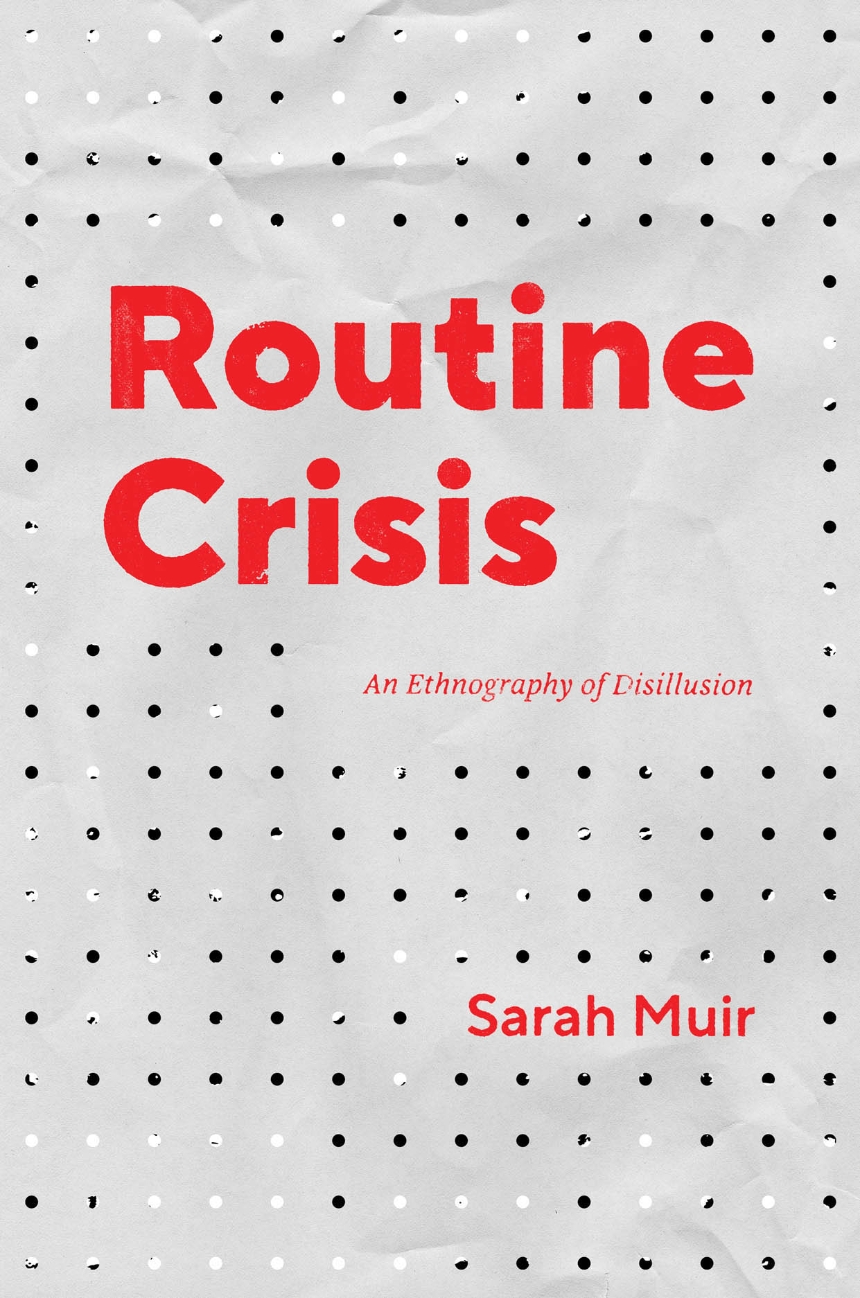Routine Crisis
An Ethnography of Disillusion
Argentina, once heralded as the future of capitalist progress, has a long history of economic volatility. In 2001–2002, a financial crisis led to its worst economic collapse, precipitating a dramatic currency devaluation, the largest sovereign default in world history, and the flight of foreign capital. Protests and street blockades punctuated a moment of profound political uncertainty, epitomized by the rapid succession of five presidents in four months. Since then, Argentina has fought economic fires on every front, from inflation to the cost of utilities and depressed industrial output. When things clearly aren't working, when the constant churning of booms and busts makes life almost unlivable, how does our deeply compromised order come to seem so inescapable? How does critique come to seem so blunt, even as crisis after crisis appears on the horizon? What are the lived effects of that sense of inescapability?
Anthropologist Sarah Muir offers a cogent meditation on the limits of critique at this historical moment, drawing on deep experience in Argentina but reflecting on a truly global condition. If we feel things are being upended in a manner that is ongoing, tumultuous, and harmful, what would we need to do—and what would we need to give up—to usher in a revitalized critique for today's world? Routine Crisis is an original provocation and a challenge to think beyond the limits of exhaustion and reimagine a form of criticism for the twenty-first century.
Anthropologist Sarah Muir offers a cogent meditation on the limits of critique at this historical moment, drawing on deep experience in Argentina but reflecting on a truly global condition. If we feel things are being upended in a manner that is ongoing, tumultuous, and harmful, what would we need to do—and what would we need to give up—to usher in a revitalized critique for today's world? Routine Crisis is an original provocation and a challenge to think beyond the limits of exhaustion and reimagine a form of criticism for the twenty-first century.
200 pages | 6 x 9 | © 2021
Chicago Studies in Practices of Meaning
Anthropology: Cultural and Social Anthropology
Economics and Business: Economics--Urban and Regional
Reviews
Awards
Association for Political and Legal Anthropology: Best Book in Critical Anthropology
Honorable Mention
